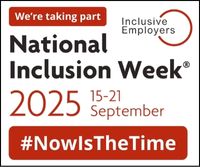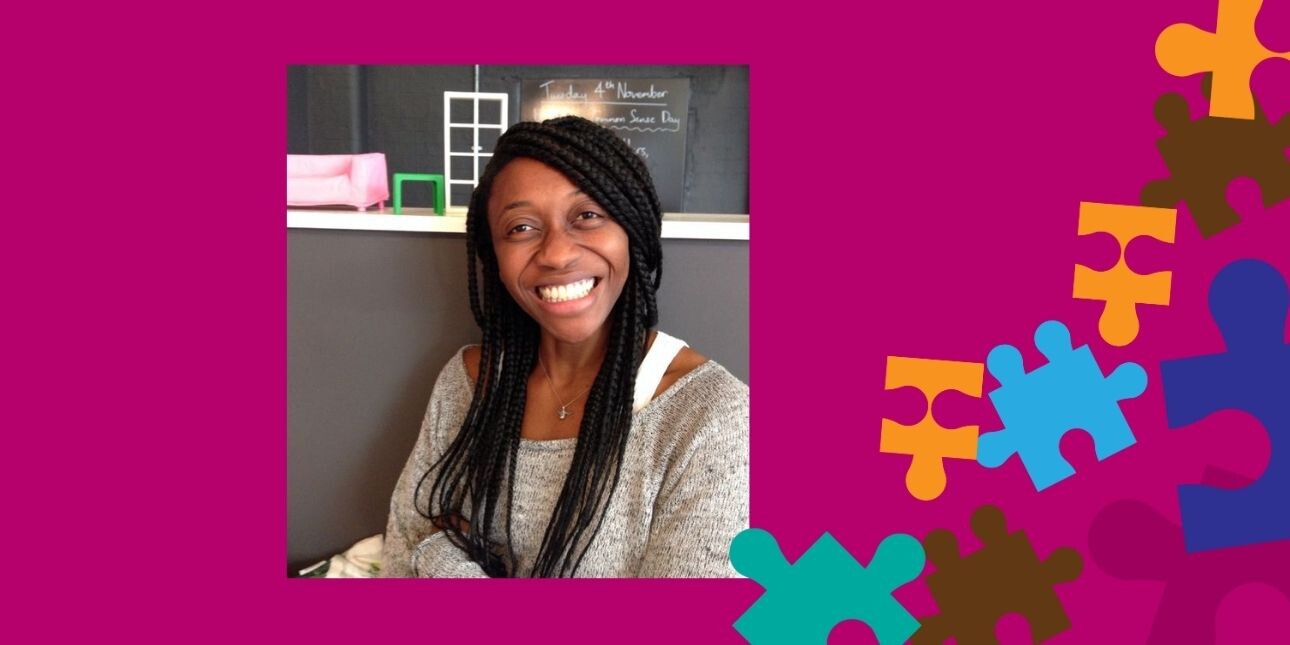'The corporate backlash on DEI initiatives is demoralising' - Helen Bazuaye
A former editor of Just Seventeen and Ikea magazines, Helen Bazuaye is the founder of content and inclusion agency Creative Grace. She also leads a social impact programme helping care-experienced 18-25 year olds break into the creative industries, drawing on her own time in foster care.

Helen Bazuaye began her journalism career in the late-1990s as a sub-editor at women’s magazine B. Within a few years, she was editing teen titles Just Seventeen and 19, before moving on to become deputy features editor at the Sunday People.
In 2007 Bazuaye became editor of Ikea magazine and spent the next 12 years overseeing content for the Swedish furniture chain. The summer of 2020 saw her launch content and inclusion agency Creative Grace.
Bazuaye is also ‘chief of everything’ at We Are Here, a social impact programme helping care-experienced 18-25 year olds break into the creative industries.
My childhood had its challenges. When I was 15, I became a ward of court and went into emergency foster care, eventually splitting from my siblings. In the care system I encountered some strangers – whether social workers or teachers – who were unexpectedly kind. Not all adults are useless.
Three years later, I was studying philosophy at University College London. I remember doing the laundry and a student asking me to help because she couldn’t open a packet of soap powder. I thought she was lucky: I spent every weekend in the launderette growing up. Now, I think I’m the lucky one: my background has given me an inner toughness.
In my final year, I became pregnant. I remember thinking ‘How am I going to get a job with a baby?’ I got an interview with a B2B publisher but didn’t mention I was a mother. When they called to offer me the job, they heard my baby making noises in the background. Luckily, it was fine.
In my first job I’d often work until 3am. When you have the job that you dreamed of as a 15-year-old, you just think ‘I’ll make it work’. During my son’s childhood, we probably only had two family holidays.
A media career takes you away from reality. However, because I needed to keep a roof over my son’s head, it meant I stayed grounded. I’m always grateful for that.
As much as you’d like to create a culture of connection as a boss, it’s also important to maintain some distance. When I became Just Seventeen’s editor, David Hepworth [veteran magazine publisher and music writer] told me it’s fine to socialise with the team and buy them drinks. But you need to leave early so they have a chance to let off steam and b**** about you.
I also received a letter almost threatening legal action from the Church of Scientology after we ran a story with the coverline ‘We are all aliens’. I was so scared when that came through.
My son once ignored Kylie. I interviewed her at the time of Can’t Get You Out of My Head and she went to shake his hand. However, he was too busy spilling Lucozade down his shirt. A high kudos ‘take your kid to work’ moment.
Noughties’ tabloids had a play-hard, work-hard culture. When I told my colleagues at the Sunday People I didn’t drink, one of them said, ‘Yeah, I’ve just come out of the Priory too’.
A stalker once tracked me down after he was released from prison. After running a story on him, he sent me Facebook messages saying he’d love to meet me alone - all in upper case letters. I had to involve the police – one of the scariest things that’s happened to me.
Working at Ikea taught me a lot about the Scandinavian way of life. Their ethos was about “siding with people with thin wallets”. Extravagance and waste isn’t something you do. We’d be building the furniture ourselves on photoshoots.
Always push back with bigots. At Ikea, we produced 33 international editions. The representative of one country said, ‘You’ve given us an option [for a magazine cover] with a Black person, which won’t work in our country. Give us anything – a dog – but not Black people.’ Ikea HQ said, ‘That’s not what we stand for: keep on sending them the covers’. We did and two years later this country picked a cover with a Black person.
I’m proud of the way Ikea chose values over profits. We once caused uproar in Russia with a magazine cover featuring a lesbian couple (Putin had just passed their anti-LGBTQ+ laws). Ikea decided to stop producing the magazine in Russia, even though it made them money, because it didn’t want to have a watered-down version that would send out a wrong message to their co-workers.
The corporate backlash on DE&I initiatives is demoralising. Karl Marx once said religion is the opiate of the masses; today it’s social media – these billionaire politicians and leaders are manipulating people down a path of fear and division. DE&I benefits everybody: the dad who wants to pick his kid up from school or any of us who want to have an equal opportunity to better ourselves, not be bullied or walk down the streets without worrying we’ll be attacked…
Forty per cent of care-leavers aged 19-21 aren’t in employment, education or training. We Are Here is about showing people with care experience that the world of the creative industries exists – they can go to shiny offices and feel they belong.
When you grow up in the care system, you learn not to rock the boat or cause friction. You’re in survival, not thriving mode.
Always hold onto the sense of who you are. I hope people attending the We Are Here workshop realise that being different is their superpower. Being a young mother and starting as a sub-editor always meant I felt like a bit of an outsider [as an editor]. But never feeling comfortable meant I never lost sight of the real world [where our readers lived] and the nice, shiny media world I found myself in.
People who are care-experienced are vastly underestimated. Editing magazines, meeting two prime ministers isn’t something you’d expect from a girl from Walthamstow who was in care. There’s so much untapped potential in this community – that’s what we want to unlock.
- We Are Here’s workshop takes place from 27-31 October, where the participants will write, design and produce a zine. If you’re interested in mentoring or volunteering, contact Helen.
Christian Koch is an award-winning journalist and editor who has written for the Sunday Times, Guardian, Evening Standard, Metro, Director, Cosmopolitan, ShortList and Stylist.
.png_346b001a7105948b895436c029138788.png)
.png_0f7278855842d9d4461b97b1ec506a3a.png)

